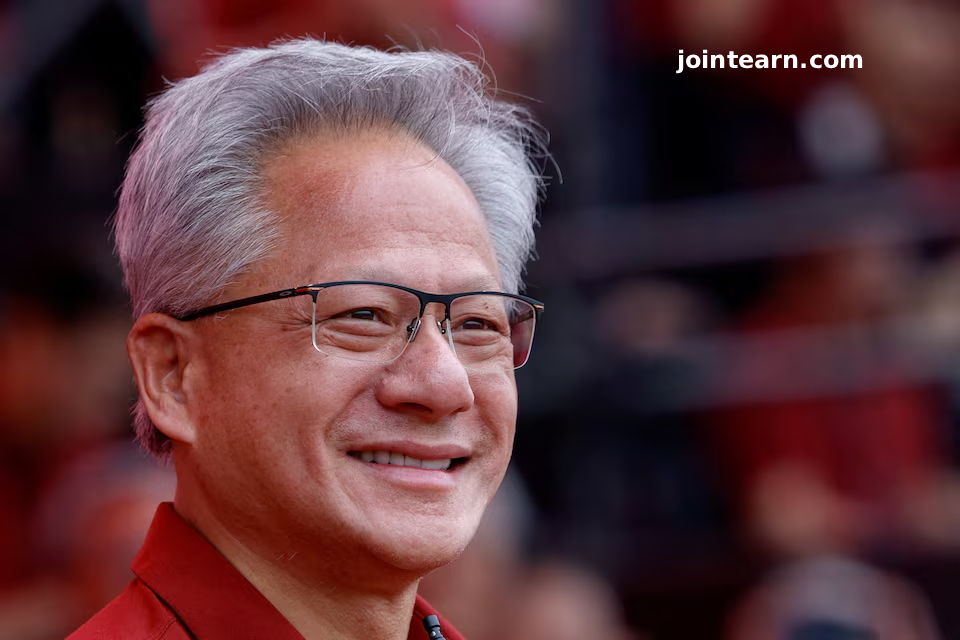
Nvidia Reports “Very Strong Demand” for Blackwell Chips
Nvidia (NVDA) CEO Jensen Huang announced that the company is experiencing exceptionally strong demand for its next-generation Blackwell GPUs and CPUs, signaling continued growth in the AI and high-performance computing markets. Speaking at an event hosted by long-term partner Taiwan Semiconductor Manufacturing Co (TSMC) in Hsinchu, Taiwan, Huang highlighted that Nvidia’s Blackwell platform encompasses not just GPUs, but also CPUs, networking components, and switches, all critical for AI workloads.
“Nvidia builds the GPU, the CPU, networking, switches—there are a lot of chips associated with Blackwell,” Huang said, emphasizing the integrated approach behind the company’s AI infrastructure.
TSMC Support and Wafer Supply
TSMC CEO C.C. Wei confirmed that Huang had requested wafer allocations to meet Nvidia’s growing production needs, though exact numbers remain confidential. Huang praised TSMC’s support, noting that Nvidia’s market success would not be possible without the foundry’s advanced manufacturing capabilities.
The partnership comes amid Nvidia’s historic milestone in October, when the company reached a $5 trillion market valuation, earning Huang the nickname a “five-trillion-dollar man” from TSMC.
Memory Supply and AI Chip Supercycle
Huang addressed concerns over potential memory shortages, stating that business was robust and that temporary supply gaps could occur across components. He highlighted strong partnerships with leading memory manufacturers SK Hynix, Samsung Electronics, and Micron, who have all expanded capacity to support Nvidia’s Blackwell production.
All three memory suppliers have provided Nvidia with advanced chip samples, ensuring readiness for upcoming AI workloads.
- SK Hynix recently sold out all chip production for 2026 and is planning increased investment to meet demand during the ongoing AI-driven “super cycle.”
- Samsung Electronics is in discussions to supply next-generation high-bandwidth memory (HBM4) for Nvidia chips.
Blackwell Chip Sales and U.S.-China Restrictions
Huang also confirmed that there are currently no active discussions about selling Blackwell chips to China. The Trump administration has restricted such sales, citing national security concerns and the potential use of advanced AI chips by the Chinese military and AI sector.
Despite these restrictions, Nvidia continues to experience strong demand globally, supported by TSMC’s wafer production and the expanded memory capacity of its partners.
Key Takeaways
- Nvidia’s Blackwell chips are in very high demand, driven by the AI boom.
- The company relies on TSMC for wafer supply and leading memory suppliers like SK Hynix, Samsung, and Micron for memory support.
- Nvidia recently reached a $5 trillion market value, reflecting its dominance in AI chip markets.
- Current U.S. export restrictions prevent Blackwell chip sales to China.
- Nvidia is positioned to benefit from an ongoing AI-driven semiconductor supercycle.


Leave a Reply